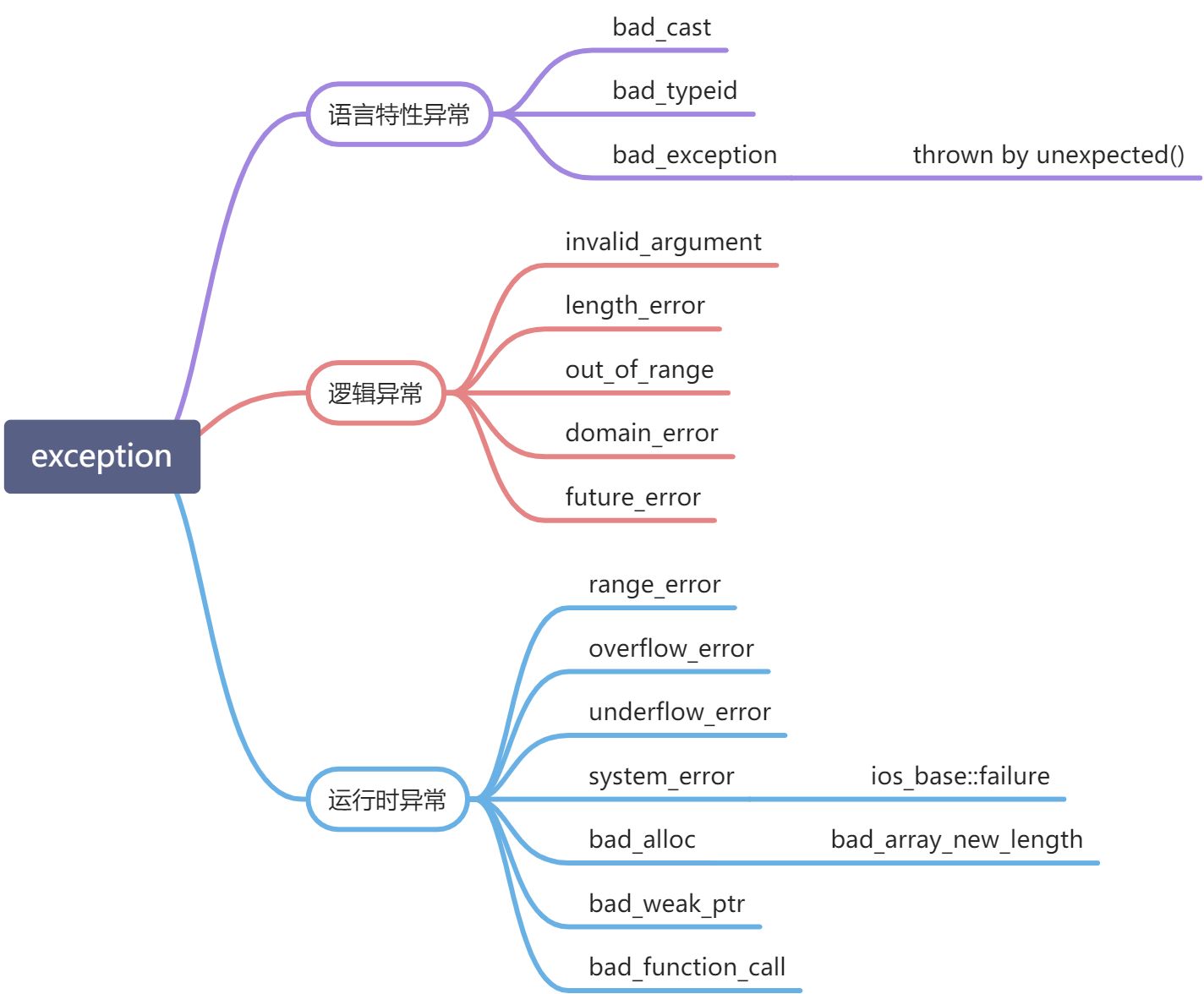1 STL中异常类
STL中所有内建的异常类(exception class)都继承自std::exception基类,可以分为如下三个类别:
2 获取exception的信息
2.1 what()
我们可以通过exception具体子类的what()方法获取异常的具体信息,该方法原型如下:
namespace std {class exception {public:virtual const char* what() const noexcept;...};}
2.2 code()
对于如下三种异常,可以通过code()方法获取erro_code或error_condition类型(可以通过其value用于进一步的判断,而不仅仅输出异常描述信息)。
- std::system_error:返回系统错误,对应枚举类
std::errc,与errno.h中定义的系统错误码一一对应 - ios_base::failure:返回IO stream错误,对应枚举类
std::io_errc - std::future:返回多线程同步错误,对应枚举类
std::future_errc3 异常处理模板
```cpp // util/exception.hppinclude
include
include
include
template
void processException() { using namespace std; try { throw; // rethrow exception to deal with it here } catch (const ios_base::failure& e) { cerr << “I/O EXCEPTION: “ << e.what() << endl; processCodeException(e); } catch (const system_error& e) { cerr << “SYSTEM EXCEPTION: “ << e.what() << endl; processCodeException(e); } catch (const future_error& e) { cerr << “FUTURE EXCEPTION: “ << e.what() << endl; processCodeException(e); } catch (const bad_alloc& e) { cerr << “BAD ALLOC EXCEPTION: “ << e.what() << endl; } catch (const exception& e) { cerr << “EXCEPTION: “ << e.what() << endl; } catch (…) { cerr << “EXCEPTION (unknown)” << endl; } } ```

